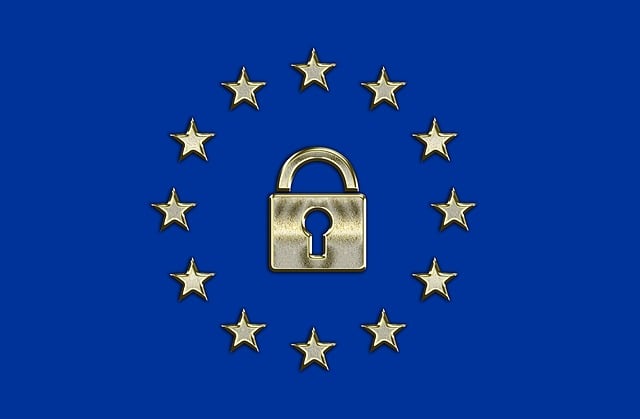Healthcare Compliance experts act as mediators between complex regulations and operational practices, specializing in Mediation Strategies for Property Disagreements. They ensure healthcare institutions remain compliant with patient protection, data privacy, and fraud prevention rules. In property disputes, mediation offers a collaborative alternative to litigation, fostering open communication and creative problem-solving. This approach saves time and costs while strengthening business relationships. In the healthcare sector, tailored mediation strategies resolve legal and ethical disputes, enhancing trust and addressing philanthropic interests. As demonstrated in a high-profile case, mediation can lead to successful settlements and enhanced organizational standing.
Healthcare Compliance Experts play a pivotal role in ensuring institutions adhere to complex regulations. From data privacy to patient rights, their expertise navigates the intricate landscape of healthcare law. This article explores the significance of mediation in property disagreements within this context, delving into effective strategies tailored for healthcare. We present case studies showcasing successful mediations in complex cases, offering valuable insights on Mediation Strategies for Property Disagreements specifically relevant to the healthcare industry.
- Understanding Healthcare Compliance Experts: Their Role and Expertise
- The Significance of Mediation in Property Disagreements
- Strategies for Effective Mediation: A Healthcare Perspective
- Case Studies: Successful Mediation Outcomes in Complex Healthcare Cases
Understanding Healthcare Compliance Experts: Their Role and Expertise

Healthcare Compliance experts play a pivotal role in ensuring that healthcare organizations operate within legal and ethical boundaries. They act as a bridge between complex regulatory frameworks and day-to-day operations, specializing in mediating strategies for property disagreements that may arise during investigations or enforcement processes. Their expertise is crucial in navigating the intricate web of rules and guidelines designed to protect patients, maintain data privacy, and prevent fraud.
These professionals stay abreast of all stages of the investigative and enforcement process, ensuring their organizations are prepared for potential challenges. By implementing robust compliance programs, they help avoid indictment and work towards achieving a complete dismissal of all charges. Their strategic insights and meticulous attention to detail contribute significantly to fostering an environment of trust and accountability within healthcare institutions.
The Significance of Mediation in Property Disagreements

In many cases involving property disagreements—be it between neighbors, businesses, or former partners—mediation emerges as a powerful solution that transcends traditional litigation. This alternative dispute resolution (ADR) method offers a collaborative approach where parties actively participate in designing their own solutions rather than leaving outcomes to court decisions. For instance, a white-collar defense attorney may find mediation invaluable when resolving complex business disputes related to property rights; this strategy can lead to more mutually agreeable outcomes for all respective businesses involved.
Effective mediation strategies for property disagreements involve establishing clear communication channels and fostering an environment where each party feels heard. Mediators play a crucial role in guiding discussions, ensuring that every perspective is considered, and helping to identify underlying interests. By facilitating open dialogue, mediators enable parties to explore creative solutions, potentially saving significant time and legal fees compared to lengthy court battles. This approach not only resolves disputes but also strengthens relationships for his clients, which can be invaluable in the ongoing business landscape.
Strategies for Effective Mediation: A Healthcare Perspective

In the healthcare sector, effective mediation strategies are essential for resolving property disagreements that often arise due to complex legal and ethical considerations. Unlike traditional jury trials, mediation provides a collaborative platform where stakeholders can openly discuss disputes and find mutually agreeable solutions. This approach is particularly beneficial as it fosters trust among all stages of the investigative and enforcement process, including healthcare providers, patients, and their families.
By employing tailored mediation strategies, experts in healthcare compliance can facilitate productive conversations that address not only legal issues but also the emotional and humanitarian aspects involved. These strategies encourage open communication, ensuring that the philanthropic and political communities’ interests are considered while navigating sensitive matters. Through this process, parties can reach resolutions that uphold ethical standards and respect the autonomy of patients, ultimately enhancing patient care and satisfaction.
Case Studies: Successful Mediation Outcomes in Complex Healthcare Cases

In the realm of healthcare compliance, mediation plays a pivotal role in resolving complex cases that often involve intricate property disagreements. Successful mediation strategies have proven to be game-changers, enabling stakeholders to navigate challenging situations and achieve mutually beneficial outcomes. Case studies illustrate that these strategies are particularly effective when applied at different stages of the investigative and enforcement process.
For instance, in a recent high-profile case, a healthcare organization faced allegations of unethical practices, leading to a prolonged legal battle. Through mediation, they were able to negotiate a settlement that not only addressed the immediate concerns but also established clear guidelines for future operations. This approach not only resulted in a winning challenging defense verdict but also fostered goodwill among the philanthropic and political communities involved.
Healthcare compliance experts play a vital role in navigating complex legal and ethical landscapes, ensuring organizations adhere to regulations. This article has explored the significance of mediation as a powerful tool for resolving property disagreements, especially in healthcare. By examining successful case studies, we’ve highlighted how mediation strategies can foster collaborative solutions, avoiding costly litigation. Understanding the expertise of compliance professionals and their ability to facilitate effective communication is key to optimizing outcomes in these sensitive matters. Mediation strategies for property disputes offer a more efficient, patient-centric approach, particularly within the healthcare sector.






